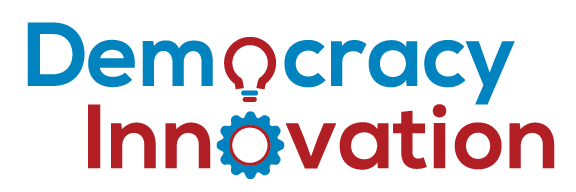
The form of democracy we have in the United States today is about 100 years old. It has served us well, but it no longer meets the needs and goals of Americans. In order to survive, democracy must evolve.
The seismic shifts that have made our current form of democracy obsolete are in many ways positive changes, and we can capitalize on them. People are more educated than ever before, they are less deferential to authority, and social media plays a steadily increasing role in their lives. As consumers, we are used to a world of choices. When it comes to governance, Americans still want to elect their representatives, but they don’t want officials do all the governing. People want more meaningful roles in public decision-making and they can contribute more to public problem-solving.
Americans favor democracy innovations that would give them greater authority and voice, along with more equitable, deliberative, collaborative relationships with their governments. Support for these measures ranges from 75% to almost 90%, without significant differences between parties. These reforms and practices include engagement commissions, large-scale deliberative processes, serious games, participatory budgeting, citizen’s assemblies, SMS-enabled discussions, youth voice programs, and many others. These kinds of innovations have already been instituted in other countries, from Iceland to Taiwan to Colombia.
At NCoC, we work to understand, test, and disseminate innovations that can make democracy more participatory, equitable, and productive. With long-time partners and new ones, we are exploring ways to:
- Scale democracy through strategies for engaging people in state and federal decisions about pressing issues like health, education, and climate change. At NCoC, we have tools and partnerships that can give people a meaningful say on the policies that affect their lives.
- Sustain democracy by inviting people to help redesign the “civic infrastructure” of their communities. This particularly important for involving a broader range of people, especially marginalized and underserved communities, so their voices are heard, their efforts to solve problems are supported, and their community networks are strengthened.
- Measure democracy so that officials and citizens can chart their progress. By sharing the data gathered through our Civic Health Index, and by allowing people to rate their communities through the Engagement Scorecard, we are giving everyone a role to play in improving democracy. These measurement tools can also show the connections between civic health and major social indicators like poverty, health, and environmental resilience.
Our first major initiative in democracy innovation, the “Measuring, Growing, Embedding Civility project, will help communities sustain democracy through better engagement practices, measure the progress of these efforts through a Civility Index, and scale the emerging tools, practices, and lessons through a national network of local leaders. The United States is not the only country trying to make democracy better. In NCoC’s work to scale, sustain, and measure democracy, we are taking full advantage of lessons we can learn from democracy innovations that have emerged in other countries. The fundamental question we face is not just “How can we save democracy?” but “What kind of democracy do we want?”